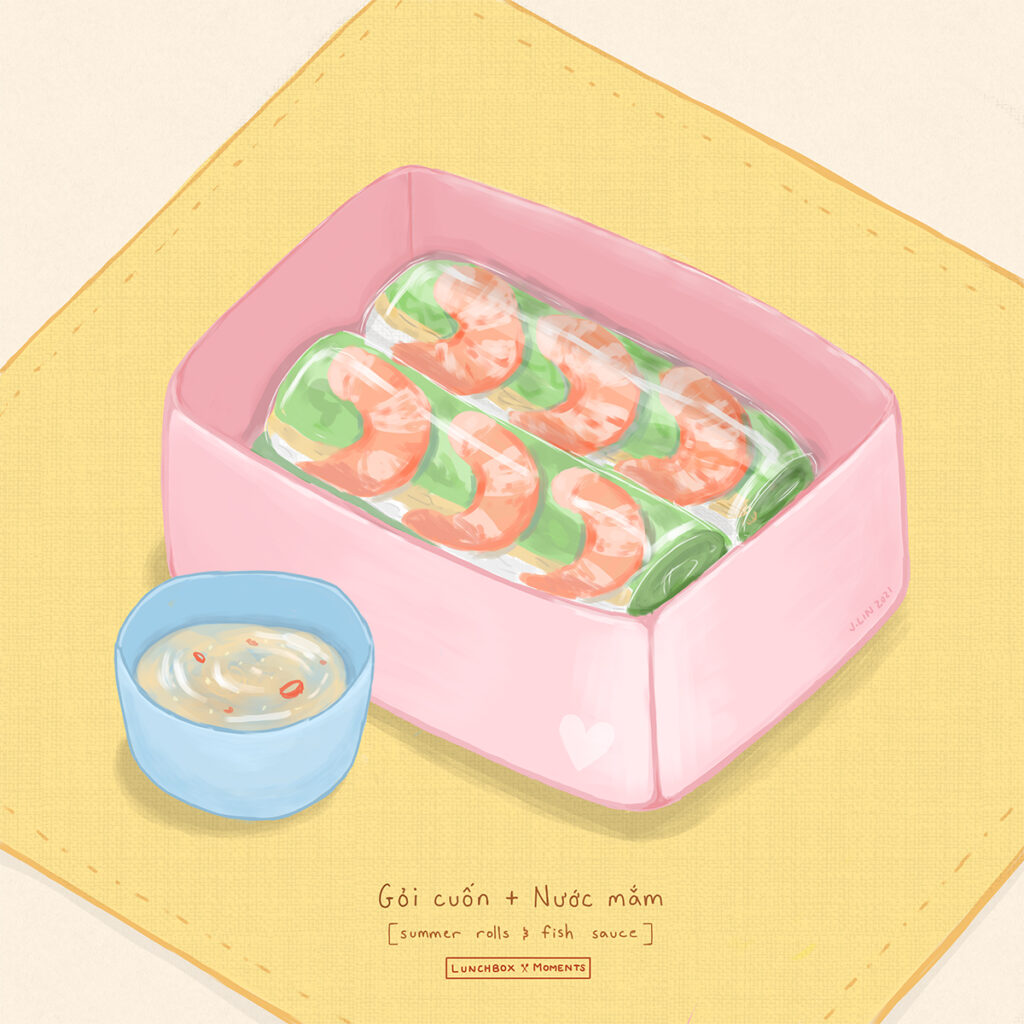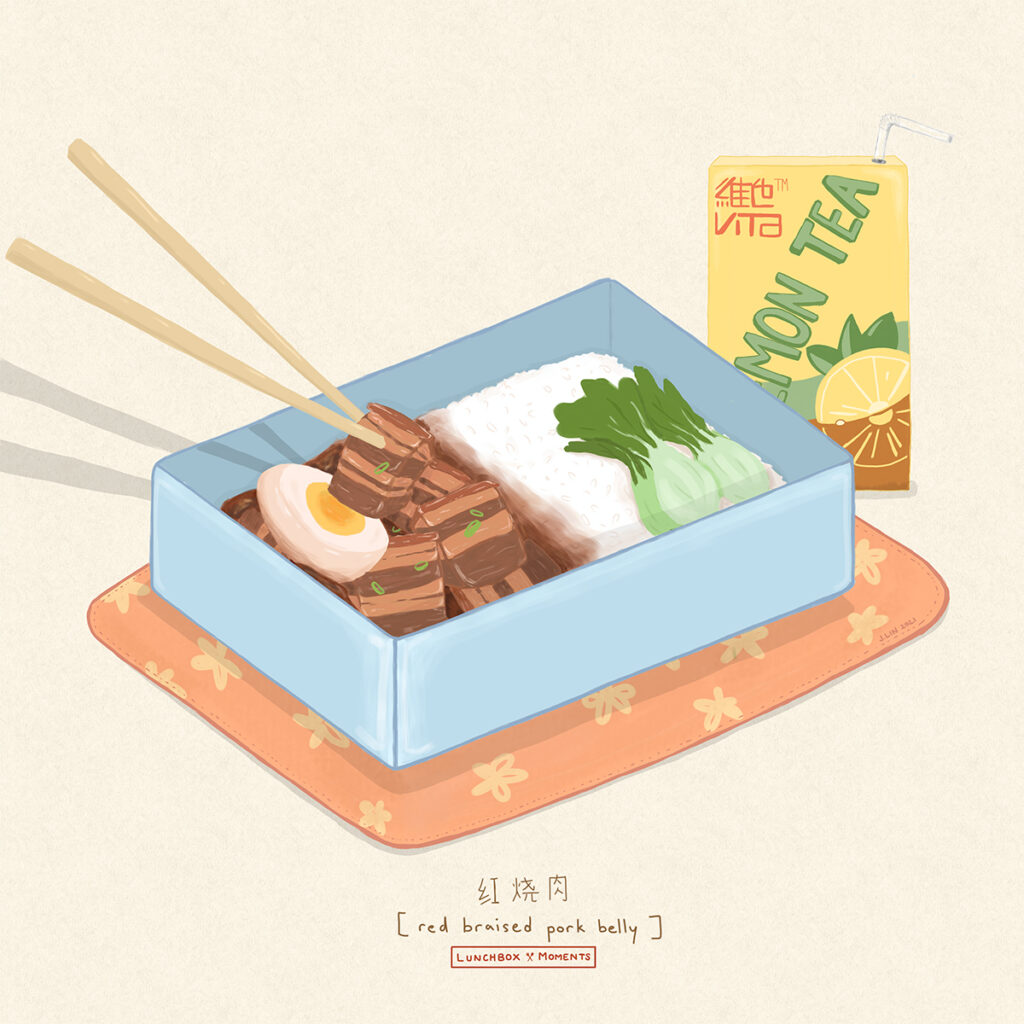Lunchbox Moments by Jessie Lin celebrates the food she brought to school for lunch when growing up
Categories: Art Wall, Student Art, Students
Over the month of May and leading up to FIFSW’s convocation on June 17, we’ll be sharing creative work by FIFSW students, including drawings, paintings, collage, video projects and more. A number of these art-based projects were created as part of course work. Some were produced as part of a co-curricular initiatives. All offer an alternative way to explore, understand, and communicate knowledge, ideas and experiences — as well as inspire action and foster a sense of community.
Lunchbox Moments
By Jessie Lin
Instagram: @jwesshi
Writes Jessie Lin:
The Lunchbox Moments art project was created as a celebration of the delicious Chinese and Vietnamese food that I grew up eating. A common experience for many BIPOC kids in Canada is a “lunchbox moment” at school, where we are mocked by our peers for the ethnic foods that our parents packed for our lunches. Often, our delicious foods were called “smelly” or even “disgusting”. For me, this led to immense feelings of shame. Shame not just of my food, but of my entire cultural identity. It was one of the first times that I could distinctly remember feeling “othered” and it made me want to hide my culture and family away from my peers.
Through this project, I wanted to rewrite this narrative and show that the food, and by extension, the culture and family, that I grew up with is something that I want to celebrate and share with others. It also acts as a bit of an homage to my mom whose love language is food. The two images shown here are digital drawings that I’ve created depicting braised pork belly and goi cuon — two of my favourite foods that I got made fun of for eating while growing up.
Lunchbox Moments was created for the course Social Work Practice with Immigrants and Refugees SWK4658, taught by Associate Professor Izumi Sakamoto. This course examines how immigrants and people of colour are constructed/understood in our society, in general, and in social services in particular. Special attention is paid to how the intersecting oppressions of race/ethnicity, gender, class, age, sexual orientation, health status, and differential ability affects immigrants and refugees in Canada. The course provides an overview of the history of immigration to Canada and the impact of social policies and programs on the settlement and adaptation of newcomers.
FIFSW students, alumni & faculty: do you have an art project that you would like to share? We would love to feature your work. Contact dale.duncan@utoronto.ca.
Click here to learn about FIFSW’s Art Wall
Related:
- Masking Across 12,548 KM by Hogan Lam highlights the struggles of an immigrant during the pandemic
- Social work professors collaborate with community organizations to explore experiences of anti-Asian racism and develop strategies to address the crisis
- FIFSW’s Asian Social Work Student Group brings Asian students together to create a safer community
- FIFSW’s Art Wall hosts Scotiabank CONTACT Photography Festival exhibit, featuring work by Alumna Raluca Bejan, with Ioan Cocan and Natasha Lan
- Immigrants are twice as likely to fear being targets of stigma during the COVID-19 pandemic in Canada
- The art of knowledge translation: Lori Chambers examines the use of film and spoken word performance in social work research and practice

